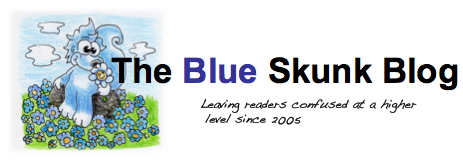"Machines are the easy part" now a free download
 Tuesday, April 22, 2008 at 06:47PM
Tuesday, April 22, 2008 at 06:47PM  I suppose we could call this an Earth Day tribute. My son's and my little book, Machines are the easy part; people are the hard part is now available as a free (paperless, non-polluting, environmentally friendly) download from Lulu.
I suppose we could call this an Earth Day tribute. My son's and my little book, Machines are the easy part; people are the hard part is now available as a free (paperless, non-polluting, environmentally friendly) download from Lulu.
You can also buy a print copy, but I haven't seen it yet, so no guarantees. Watch the shipping charges - the default setting is very expensive.
The book was a joint project for Brady and me during his senior year of high school four years ago. It was a genuine labor of love. I don't always understand my shy, talented son, but I appreciate him.
I've sold or given away about 1,000 copies since the book came out. Being the astute businessman that I am, I sold the book that cost me $14 a copy to publish for $12. So I figured every time I gave one away, I was saving $2.
Brady was smart - getting paid for his art work up front.
A few notes about publishing on Lulu:
- The text was easy to format and submit to Lulu. I still can't quite figure out how to do a cover I like. Creating a cover just seems harder than it needs to be.
- Lulu allows you to place a Creative Commons license on the work. The site says "Creative Commons Attribution-NonCommercial-ShareAlike 2.0". It's really 3.0.
- I've already spotted a few typos in the Lulu edition that weren't there in the earlier print version. Yes, folks, I do know when to use "its" and when to use "it's." I just can't seem to see the mistakes in my own work. What is up with that? (Now I am still confused about "lie" and "lay" and substitute other words whenever possible.)
- I really like how you can set your own price, give electronic copies away, and revise the work as needed. No cost for publishing either.
Anyway, Brady and I hope you enjoy our effort. I think we need to start another book once he graduates from college this summer!
Happy Earth Day.
 Books
Books 







